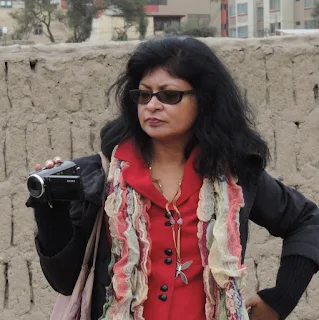Dr Kris Rampersad, Trinidad and Tobago representative on UNESCO Executive Board, 2013 to 2017
PORT OF SPAIN, Trinidad -- The particular challenges of small island developing states (SIDS), and the particular realities of Trinidad and Tobago as a small island with a continental physical and natural heritage, require special focus within UNESCO programmes and budgets, according to recommendations presented by Dr Kris Rampersad, Trinidad and Tobago representative to the UNESCO executive board during its 196th session in Paris, France.
Rampersad was unanimously presented by colleagues of the Latin American and Caribbean Group (GRULAC) and accepted by the executive board to chair the Education Commission at the upcoming 38th sessions of the UNESCO general assembly to take place in November.
The decision took place at the 196th session of the UNESCO executive board, on which Rampersad serves as the representative of Trinidad and Tobago. She has been unanimously elected to co-chair the executive board’s Programme and External Relations Commission for the three consecutive sessions since 2013.
The general assembly and the executive board are the two governing organs of UNESCO.
“These provide considerable opportunities to advance Trinidad and Tobago’s presence in UNESCO which is working to build a culture of peace and share our experiences and challenges in the region in this respect in the face of numerous challenges, including size and capacity as small island sovereign states,” she said.
Education Minister Dr Tim Gopeesingh has commended Rampersad’s work on the UNESCO board and her upcoming chairmanship of Trinidad and Tobago, recognising the significant place Trinidad and Tobago has occupied within UNESCO, now celebrating its 70th anniversary.
The Trinidad and Tobago representative maintained a high level of participation and representation in the numerous activities of the executive board strengthening networks with representatives of SIDS, the Commonwealth, GRULAC, and the Caribbean Community (CARICOM) within UNESCO.
She presented the Trinidad and Tobago national Leading for Literacy Now! project as a model approach to address challenges with literacy; and identified challenges identified in the allied National Commission Leading for Numeracy initiatives.
Leading for Literacy Now was a programme introduced during her term as chair of the National Commission (2011-2015) in conjunction with declaration of a Decade for Literacy for Trinidad and Tobago implemented by the Elizabeth Crouch-headed Education Committee of the National Commission.
It was inspired by UNESCO Director General Irina Bokova’s 10,000 Principal Leadership programme, with financial support from UNESCO, the ministry of education, the private sector and also represents a model UNESCO-public-private sector partnership initiative.
Rampersad has actively contributed to UNESCO’s efforts over the past two years in defining actions for programmes and budgets that will meet the needs of small island states; and suggested ways of deepening synergies across UNESCO programme areas of science, education, cultural heritage conservation and advancing the creative industries, and use of information and communications to achieve greater efficiency, effectiveness and cost savings.
She advocated the need to ensure balanced and equitable programme focus and allocations through the debates on UNESCO’s role in the UN post-2015 education agenda; UNESCO’s alignment with the Global Geo Parks initiative, protection of journalists, the centralisation of culture in development, and a deeper role of UNESCO Institute of Statistics in matters related to SIDS.
She further participated in UNESCO’s introduction of a new International Day of University Sports, the rights to learning without fear and making classrooms safe zones, facilitation of technical and vocational education and education in the digital age; the place of information and communication technologies to advance learning of persons with disabilities; developing global citizenship, among others.
Rampersad is an author and an independent media, cultural and literary development educator and consultant. She was appointed to the UNESCO executive board in 2013, following UNESCO elections in which Trinidad and Tobago polled the highest number of votes within the Group of Latin American and Caribbean Countries (GRULAC).





















